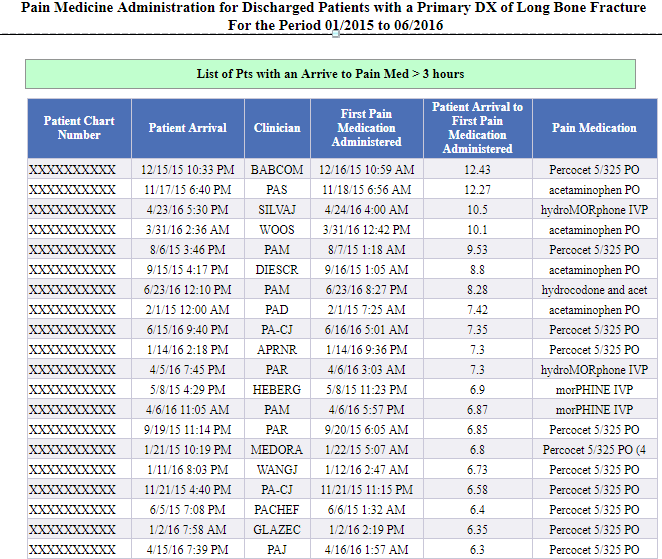d2i’s solution includes clinical protocol compliance analytics with exception reporting that supports your quality improvement initiatives, leading to better outcomes and, ultimately, a reduction in the cost of malpractice insurance.
According to ECRI Institute’s Top 10 Patient Safety Concerns for Healthcare Organizations for 2018 report, the No. 1 safety concern is diagnostic errors (followed by opioid safety across the continuum of care, and internal care coordination). The report stresses that diagnostic errors are common, that they’re caused not just by miscommunication but also by multiple cognitive and systemic factors, and that they can have profound consequences.
Using Data to Monitor Compliance to Clinical Protocols
Every HCO’s top priority is patient safety, but it can be daunting to know where to focus patient safety efforts and mitigate risks. Being able to monitor compliance to clinical protocols to ensure best practices are being adhered to should reduce diagnostic errors. The ERCI Institute’s report suggests:
Diagnostic errors are also challenging to measure and learn from because they often go undetected until after the patient leaves the hospital or emergency department (ED).
While efforts to capture diagnostic errors in near-real time are being pursued, they are not widely deployed or adopted yet. So, HCOs must find effective ways to capture data from a multitude of sources, including, but not limited to:
- Event-reporting systems
- Malpractice and payment claims
- Patient surveys and complaints
- Record reviews
- Autopsies
Once an HCO has the data, it needs to leverage it with a tool that supports its quality improvement (QI) programs by monitoring compliance with clinical protocol to reduce or eliminate errors.

d2i’s compliance exception reporting will redefine your continuous quality improvement initiatives. This HCO is monitoring patients who had a diagnosis of long-bone fracture and received pain medication more than three hours after arrival.
Assessing and Analyzing Data With d2i’s Tools
Transforming data into intelligence leads to safer, more standardized clinical practices and better outcomes. After data is captured, HCOs should have a system in place to support ongoing data analysis.
Properly assessing and analyzing data to reduce or eliminate diagnostic errors requires the right tools. With d2i’s toolset, you can:
- Monitor Adherence to Protocols: Our compliance exception reporting will redefine your continuous quality improvement initiatives, helping you make sure your clinical staff is following your defined protocols.
- Improve Documentation Quality and Accuracy: Our solutions can help identify gaps or outliers in documentation, inconsistent coding, and risk.
- Improve Quality of Care: With our comprehensive analytics toolset, you have the ability to improve a patient’s experience from the registration desk to departure from the ED.
- Standardize Procedures and Tests: You’ll be able to standardize patient care by identifying when procedures and tests are ordered beyond normal guidelines.
- Monitor and Report on Quality Measures: We provide structured data for your reports so you can maximize payment incentives and avoid penalties.
Ensuring that all physicians are following their HCO’s protocols and policies is an ongoing strategy that can prevent big mistakes, and is an essential part of any quality improvement initiative. By setting up best practices, decision-makers will be able to see if the protocols they have in place are helping reduce or eliminate errors, and if they’re not, it can help them decide how to adjust.
d2i transforms health care data into an asset by making it smart and actionable for better decision-making and improved outcomes. Let d2i give you the tools you need to improve your quality improvement efforts so you can reduce or eliminate diagnostic errors. Contact us for more information about our analytics tools, or to schedule a 30-minute demo.